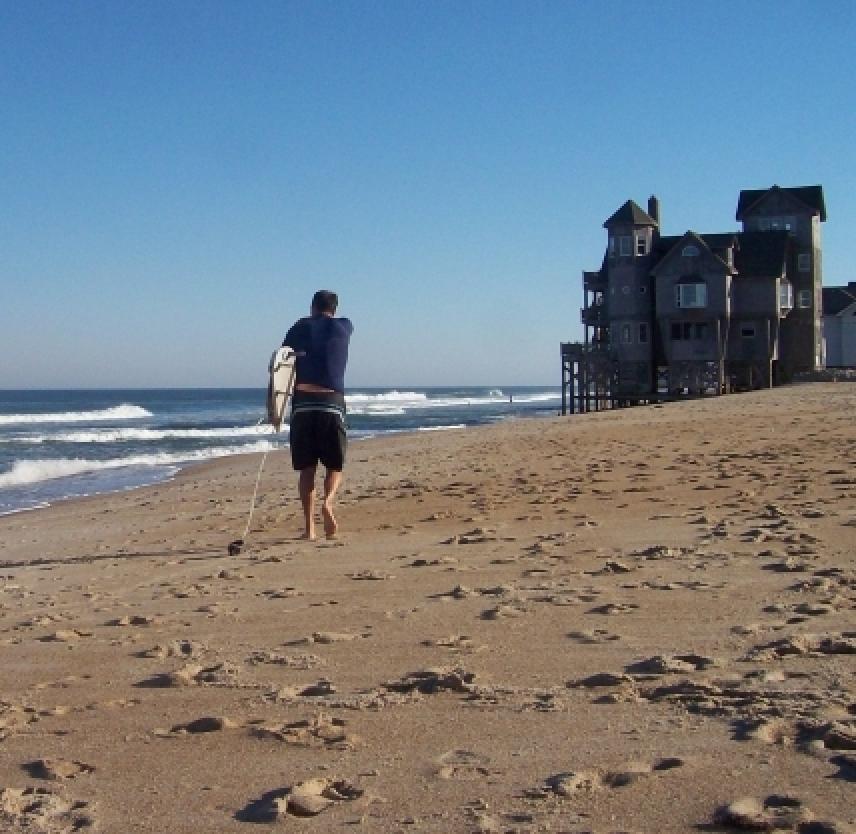
I’m a firm believer that the better a person recovers after TBI, the better the whole family recovers. But due to insurance limits and money constraints, many people are released from rehabilitation programs while there is still progress to be made.
When Hugh was released from physical therapy, he could walk a straight line, run a bit on the treadmill, and he had regained significant balance and coordination, but he was still a long way from what he called “normal” for himself. He could not ride a bike on the road because his balance was off, he tired easily, and his strength and endurance were far less than he had achieved before his TBI.
So, after he was released, here’s what we did:
- We started walking, then running together (he soon outran me and went solo).
- Hugh trained on a wind trainer (stationary bike) in our garage. He didn’t always enjoy this — he preferred the road — but he stayed with it until his balance improved enough to ride outside. Each attempt to ride outside was “supervised” by an experienced cyclist overseeing him to assure a “soft landing” and to check that he could pace a straight line and ride safely.
- I hired a friend who was a personal trainer and expert swimmer to design cross-training and swimming workouts for Hugh at a local gym. Within several weeks, we noticed significant cognitive benefits from this training as well as physical benefits. (This was not expensive. The trainer was a college student happy for the work).
- We celebrated every milestone, no matter how small. Each new level was a major stepping stone to freedom, independence, and personal happiness.
Likewise, when Hugh was released from speech/cognitive therapy, his memory, executive function, and attention had drastically improved, but we both felt that continuing cognitive exercises at home would benefit him.
Here’s what helped:
- At first, he read: the Wall Street Journal, textbooks, novels, and he helped our daughters with their homework. We always asked him to look things up, to check the internet for information, or to make lists (grocery lists, to do lists, etc.).
- We played games with Hugh that required thinking like Scrabble, Rummikub, Bananagrams, the Memory Game, or card games.
- As he improved, he took classes. Hugh had lost his job as an accounting executive for a Fortune 500 company, but he still had many talents and stores of knowledge in his long-term memory, so he took real estate classes and passed his real estate exam.
- As he became sharper, he attempted to take a few online classes to keep up his CPA, and passed a few of those classes.
- He studied Spanish on his computer through the Rosetta Stone program to improve his memory.
- He volunteered his time to be a consultant to new business owners and refined his problem solving skills.
- Eventually, he returned to work, and working increased his stamina immensely.
- After working full-time for a few years, he returned to school at night and completed his MBA in finance!
All of us — caregivers and people with brain injury — can improve our physical, mental, cognitive, and emotional abilities with the simplest of tools. The key is to take one day at a time, stick with it, and celebrate each pebble of progress — and before you know it, you’ll be standing on a mountaintop of achievement.

Comments (11)
Please remember, we are not able to give medical or legal advice. If you have medical concerns, please consult your doctor. All posted comments are the views and opinions of the poster only.
Anonymous replied on Permalink
Anonymous replied on Permalink
Anonymous replied on Permalink
Anonymous replied on Permalink
Anonymous replied on Permalink
Anonymous replied on Permalink
Anonymous replied on Permalink
Anonymous replied on Permalink
Anonymous replied on Permalink
Anonymous replied on Permalink
Anonymous replied on Permalink